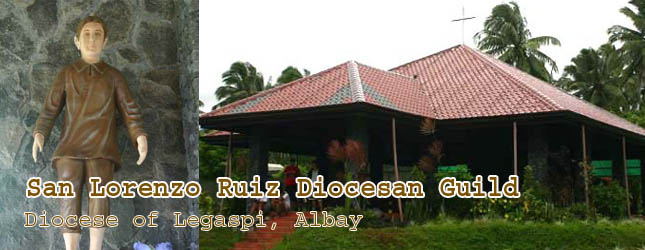
The law further provides, that "the Civil Service Commission, in coordination with the Department of Agriculture, Department of Science and Technology, Department of Trade and Industry, and in consultation with the concerned private sector, shall promulgate the rules to implement this Act consistent with the viable development plan for the sector".
It took two (2) years for the CSC to pass its Implementing Rules, i.e, CSC MC No. 11 series of 2006 only to inform the public that R.A. 9242 cannot be implemented due to the lack of tropical fabric. In 2007, CSC MC No. 10 was enacted: "the implementation of R.A. 9242 shall be on voluntary basis because of limited supply". In 2008, no circular was passed regarding the matter. Does this mean that the CSC is unpatriotic? NO.
 (Acting Chairman Cesar D. Buenaflor delivering his message during a Christian Life Concert, in celebration of the 109th Founding Anniversary of the Civil Service Commission last September 2009., sponsored by life.com, a Christian fellowship organization at CSC.)
(Acting Chairman Cesar D. Buenaflor delivering his message during a Christian Life Concert, in celebration of the 109th Founding Anniversary of the Civil Service Commission last September 2009., sponsored by life.com, a Christian fellowship organization at CSC.) With everybody's help and support, however, like that of the AKO BICOL MOVEMENT, Chaired by Zaldy Co, after we featured Estanza:The Future City in Albay and after putting-up this site in return the kindness of the Bicolanos during typhoon Reming - it is high time for us reciprocate kindness with kindness .
With the present trend, we are hoping, praying and advocating that a day shall come for us to see fashion designers, models, artists, weavers and people from within and without the government all over the country to converge and move as one with Cecil Soriano of FIDA, MON FAVILA of the Fashion Artists Foundation, among others, to watch models doing a catwalk to showcase clothes made of Philippine Fibers - to attract the private sector to invest in mass production of Philippine Tropical Fiber to be used by government officials and employees - with the Civil Service Commission now, in the forefront. The Philippine Government is the largest employer in the country with over a million in strength. The CSC was mandated to implement said law and it has the authority to promulgate subordinate legislation. After all, the legislature, may provide funds for that matter. What is needed is to organize, plan and continue institutionalizing the advocacy. After all, this advocacy has an internal economic rate of return with multiplier effects as it shall not only instill nationalism but, could create jobs as well. The General Appropriations Act yearly provide funds for clothing allowances of government officials and employees. Government officials and employees likewise enjoys allowances for clothing when travelling abroad. We can make a difference, it is just a matter of faith and perseverance, like Cecile.
Let us then revolt, rise from the rubles of disaster and move as one, like our comrades in the Cordillera, Dir. Dang-Awan of BFAR-CAR and Mercy Bahatan of the CPLA, Willy Cabezon, et. al. of the BSWM, Gov. Aumentado, Col. Luga and Rebel Returnee Boy Simbajon in Bohol, who never hesitates to act whenever higher interest dictates - with the Civil Service Commission in the forefront. May our prayers be heard.
We have been advocating for the "Fiber For Life" as early as 2007 to revive the Fiber Industry not only because of our cultural heritage as a people, but in order to help our countrymen and the Philippine economy per se to recover from the ravage of disasters. From the Tinalak weavers in Mindanao and the Cordillera, the Piñas in Camarines Norte, Ililoilo and Aklan, the Raffia in Bohol, these multi-cultural Philippine Fibers symbolizes our pride as a people in times of peace, in war and, now, in disaster! The Raffia symbolizes the cloth used by the Katipuneros at Inabanga, the cradle of the longest revolt against the Spaniards by Franciso Dagohoy, in Bohol.
Cecile Soriano took the opportunity to promote Philippine Fibers with the Philippines ' Department of Agriculture, under Secretary Arhtur Yap. The Fiber Industry Development Authority (FIDA) hosted the three-day joint meeting of the Intergovernmental Group on Hard Fibers (IGHF) and the Intergovernmental Group on Jute, Kenaf and Allied Fibers as part of the celebration of the International Year of Natural Fibers.
































